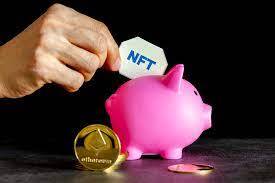After months of speculation about the possibility of a new U.S. regulator focusing on cryptocurrency, U.S. Senators Cynthia Lummis (R-WY) from the Senate Banking Committee and Kirsten Gillibrand (D-NY) from the Senate Agriculture Committee introduced bipartisan legislation on Tuesday.
Although the document's 69-page length doesn't deal with NFTs, it provides important information to determine if a token should be classified as a commodity rather than a security.'
More News: Latest NFT News
Definition of "digital assets" as well as 'virtual currencies
In its current version, Lummis and Gillibrand's bill defines a "digital asset' as an electronic asset that grants access rights for economic or proprietary reasons or powers, including virtual currencies and payment stablecoins.
The bill defines "virtual currency" as a digital asset used "primarily" as a medium for exchange, the unit of account, or store of value that is not supported by financial investment.
Most cryptos will be considered 'commodities.'
The 69-page bill, known as the "Responsible Financial Innovation Act', promotes "responsible innovation," where the majority of crypto-related markets are under the jurisdiction of the Commodity Futures Trading Commission (CFTC) and not the stringent requirements for reporting and expectations from the SEC.
But it leaves the market with a wide range of tokens under the SEC's supervision. The bill's language defines cryptocurrency as "ancillary assets" or intangible assets that are fungible and offered or sold in conjunction with the purchase or sale of securities. According to U.S. law and the area of jurisdiction of the CFTC, such secondary assets will be classified by the CFTC as "commodities."
Aides to Sens. Lummis and Gillibrand have also stated that the bill would treat any digital asset to be "ancillary" unless they behave as a security company would generally issue to investors to raise capital, such as the right to liquidate dividends or an Interest in the financials of the issuer.
Companies can sign up as "digital asset exchanges."
The bill tries to regulate "digital assets exchanges' by distinguishing between an 'uncentralized' and 'centralized exchange, it does not define what a "digital assets exchange' actually is.
One lawyer posed the question of the possibility that a decentralized platform, for the circumstances, can be described as an automated market maker (AMM) or the liquidity pool or front-end. Brandon Ferrick, general counsel at Injective Labs, identified what he believes is an "internal inconsistency", pointing to the difficulty of creating creators to alter or influence the product or the organization they created.
"So in the case of a decentralized platform here, if the law requires that the platform only lists certain...tokens, if the person who created it and released it no longer retains the power to comply with that law, you're going to 100% fail every time...it reflects a misunderstanding of what's happening with the underlying technology," the man told the Inquisitr.
Stablecoin providers are required to divulge their reserves openly.
This week in the week that passed, on the same day, the New York State Department of Financial Services announced new regulations for licensed cryptocurrency businesses that issue stablecoins. The rules call for the requirement of reserves and periodic independent audits. This could impact holders currently in the state's BitLicense holders.
New York's famous crypto regulations, BitLicense, which was first introduced in 2015, permits a business to carry out Virtual Currency Business Activity involving New York or a New York resident.
But under Lummis Gillibrand's bill, the stablecoin companies must publicly reveal their reserves to be fully supported by cash and undergo regular audits. This could raise questions about Circle and Tether, two of the biggest stablecoin issuers. They recently disclosed that their offerings were backed by a mix of cash items such as short-term securities and commercial paper.
Full-time audits, according to Lummis, could be the first of their kind for stablecoins.
The bill may not gain much traction until 2023, with the midterm elections in November, but it'll be a good starting point for more regulation.
Given the scope and complex nature of the bill, lawmakers may be able to study and approve it in its parts, with amendments to the statement that talks directly with NFTs. Post By The NFT News

Comments
Post a Comment